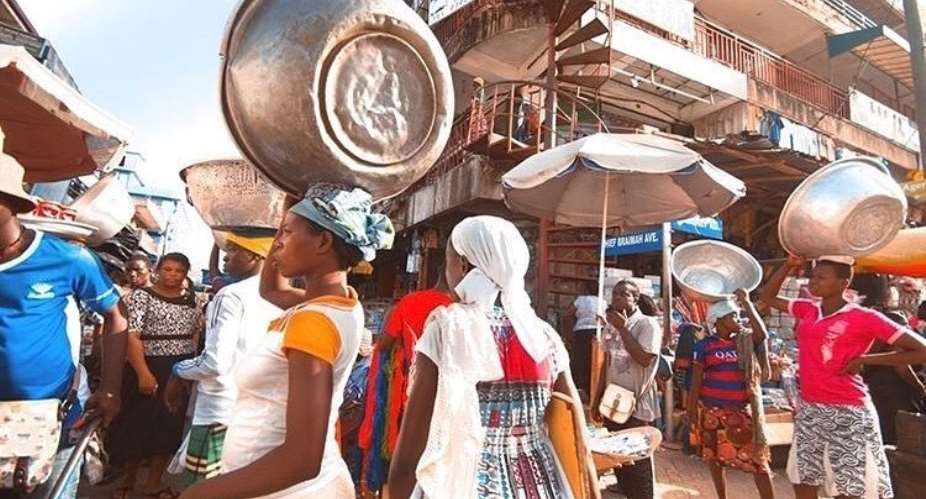A report by Women in Informal Employment: Globalizing and Organizing (WIEGO) has revealed that 850,000 Ghanaians, mostly women, were pushed into extreme poverty in 2022 due to a host of factors, including high levels of government debt and the closure of international markets to Ghana, etc.
The research conducted in October 2023 discovered that despite Ghana making a slight recovery from the COVID-19 pandemic in 2021, most of these 850,000 Ghanaians became vulnerable to inflationary pressures which led to a cost-of-living crisis.
“While the economy had slightly recovered from the pandemic in 2021, high levels of government debt, the closure of international markets to Ghana, and global disruptions to the supply chain as a consequence of the war in Ukraine all led to a steep depreciation of the cedi (ITA, 2023).
“Considering the country relies heavily on imports, the situation resulted in high inflationary pressure. In 2022, nearly 850,000 Ghanaians were pushed into poverty due to rising prices (Kwakye et al., 2023: 44).
“By the time this research was conducted (October 2023), the inflation rate averaged 35 per cent. It was particularly high for food and non-alcoholic beverages (+45), and other necessities like health services (+28), housing, water and electricity (+25), transport (+25), and education (+13) (GSS, 2023a:7).”
The report found that the cost-of-living crisis disproportionately affects workers in informal employment, who make up 89 per cent of the employed population nationally (83 per cent in Accra).
According to the report, most workers in informal employment lack access to critical safety nets – pension and poverty relief programmes, cash transfers, and microfinance schemes – which leaves them particularly vulnerable to economic shocks.
—CitiNewsroom





 Ejisu by-election: I will be shocked if Aduomi is able to secure 5percent vote —...
Ejisu by-election: I will be shocked if Aduomi is able to secure 5percent vote —...
 University President expresses worry over surge in provocative dressings, indisc...
University President expresses worry over surge in provocative dressings, indisc...
 Avetakpo residents lament disregard shown by Ho West officials, threatening to p...
Avetakpo residents lament disregard shown by Ho West officials, threatening to p...
 New Jakpa palace will be grand symbol of our history and culture — Mahama to Yag...
New Jakpa palace will be grand symbol of our history and culture — Mahama to Yag...
 Prof. Jane Naana has shaken Ghana's political foundation, causing NPP to run hel...
Prof. Jane Naana has shaken Ghana's political foundation, causing NPP to run hel...
 I've been receiving threats after I commended NPP for completing school projects...
I've been receiving threats after I commended NPP for completing school projects...
 Bawumia is ready to debate Mahama any day – Frederick Opare-Ansah
Bawumia is ready to debate Mahama any day – Frederick Opare-Ansah
 Register births at CHPS compounds; don't come to Accra – Birth & Death Registrar...
Register births at CHPS compounds; don't come to Accra – Birth & Death Registrar...
 We never said only 10 BVDs were auctioned – EC replies IMANI
We never said only 10 BVDs were auctioned – EC replies IMANI
 Election 2024: Akufo-Addo willing to trample on Ghana’s constitution – Mahama
Election 2024: Akufo-Addo willing to trample on Ghana’s constitution – Mahama
